PROMO!
First order? Get 10% OFF with this code: 1storder
Our Product Categories
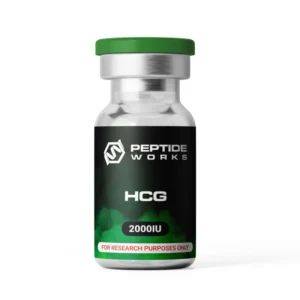
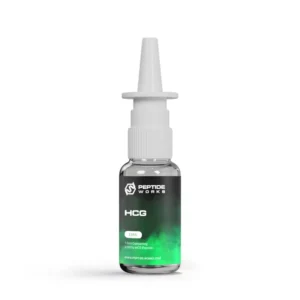
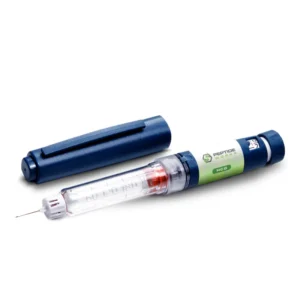
Human Chorionic Gonadotropin (HCG) is a hormone made by the placenta during pregnancy. It helps maintain early pregnancy by supporting progesterone production, which is necessary to keep the uterine lining intact and support embryo development. Furthermore, HCG’s rapid increase in early pregnancy makes it a key indicator in pregnancy tests.
The peptide is used in fertility treatments to help trigger ovulation or support the luteal phase. Researchers also study HCG to understand its role in reproductive health, hormone function, and potential medical applications.
Beyond pregnancy, HCG has significant medical applications, particularly for men. It is commonly used to boost testosterone production in cases of hypogonadism or testosterone deficiency. Additionally, it helps preserve testicular function and size during testosterone replacement therapy (TRT) and can stimulate sperm production to improve male fertility.
Peptide Sequence (IUPAC Condensed): N(1)Cys-Gly-OH.H-Aad(1)-OH
Molecular Formula: C11H19N3O6S
Molecular Weight: 321.35 g/mol
Synonyms: human Chorionic Gonadotrophin
View the HCG Certificate Of Analysis (COA)
View the HCG High Performance Liquid Chromatography (HPLC)
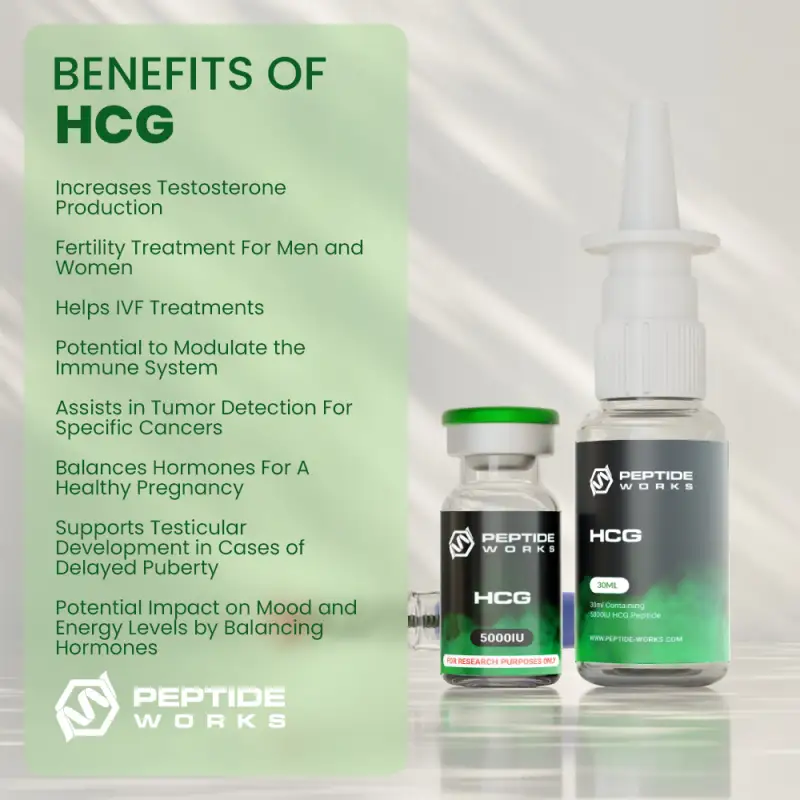
Human Chorionic Gonadotropin works by mimicking luteinizing hormone (LH), a hormone made by the pituitary gland. The peptide binds to LH receptors on target cells, primarily in the ovaries and testes, triggering a cascade of biological responses.
In women, the peptide stimulates the ovarian follicles to release a mature egg (ovulation) and supports the corpus luteum, which produces progesterone. This progesterone is crucial for maintaining the uterine lining and supporting early pregnancy.
In men, synthetic HCG (human chorionic gonadotropin) stimulates the Leydig cells in the testes to produce testosterone. This is especially helpful for treating hypogonadism or supporting testicular function and sperm production during testosterone replacement therapy (TRT).
It’s ability to mimic LH makes it a valuable tool in fertility treatments, hormone therapies, and certain medical conditions requiring hormonal regulation.
Buy HCG Peptide Vial with 99% purity from Peptide Works. This lyophilized powder is available in 2,000 IU and 5,000 IU vials or as complete kits that include bacteriostatic water and syringes for easy and accurate reconstitution.
Hormone Regulation and Testosterone Support in Men: Research has demonstrated that Human chorionic gonadotropin is essential for hormone regulation and testosterone support in men. Acting as a luteinizing hormone (LH) analog, it has been shown to stimulate Leydig cells in the testes to produce testosterone. This helps restore natural testosterone production during or after testosterone replacement therapy (TRT) or anabolic steroid use [1].
Studies have shown that HCG also prevents testicular atrophy (shrinkage of the testes) by maintaining intratesticular testosterone levels [2]. Additionally, it supports spermatogenesis, preserving fertility even during exogenous testosterone therapy. Studies highlight its effectiveness in improving sperm count, motility, and maintaining normal intratesticular testosterone, making it a valuable option for hypogonadal men aiming to protect fertility [3].
Fertility Enhancement: Human chorionic gonadotropin enhances fertility in both men and women through targeted hormonal support.
In Men: HCG stimulates Leydig cells, increasing sperm count, motility, and testicular volume in hypogonadotropic hypogonadism. It is often combined with FSH therapy for optimal fertility outcomes. Studies show significant improvements in spermatogenesis, even in men using non-prescribed androgens [4].
In Women: HCG mimics the natural LH surge to trigger ovulation in assisted reproductive protocols. It also supports the luteal phase by stimulating progesterone production from the corpus luteum, improving implantation and pregnancy rates in assisted reproduction techniques.
Hormonal Support in Women: Scientific evidence has shown that human chorionic gonadotropin provides crucial hormonal support in women by stimulating the corpus luteum to produce progesterone during early pregnancy. This progesterone is essential for preparing the endometrium for implantation and maintaining pregnancy until the placenta takes over hormone production.
It is also used to treat luteal phase defects and anovulatory disorders, improving fertility outcomes. In assisted reproduction, HCG supports the luteal phase, enhancing implantation and pregnancy rates by compensating for low natural progesterone levels. Studies highlight its role in sustaining early pregnancy and addressing inadequate corpus luteum function, ensuring better outcomes in fertility treatments.
Diagnostic Applications: Research has demonstrated that Human chorionic gonadotropin is a versatile diagnostic tool with applications in various contexts:
Pregnancy Detection: HCG is a reliable marker, detectable in serum or urine within 10 days of conception.
Tumor Marker: Elevated HCG levels indicate germ cell tumors, choriocarcinoma, or testicular cancer. High HCG levels are linked to increased tumor vascularization and poor prognosis, making it a critical marker for monitoring and treatment decisions [9].
Endocrine Testing: The HCG stimulation test evaluates Leydig cell function and testicular reserve, particularly in conditions like micropenis in children. It assesses testosterone production, confirming viable testicular tissue and normal Leydig cell activity [10].
Buy HCG Pre-Mixed Peptide Pen from Peptide Works. Each cartridge is available in 5,000 IU options and can be purchased individually or as a complete kit that includes a reusable pen, needle tips, and a carry case for convenient and precise preparation.
[1] A D. Coviello, A M. Matsumoto, W J. Bremner, K L. Herbst, et al (2005) Low-Dose Human Chorionic Gonadotropin Maintains Intratesticular Testosterone in Normal Men with Testosterone-Induced Gonadotropin Suppression – The Journal of Clinical Endocrinology & Metabolism, Volume 90, Issue 5, 1 May 2005, Pages 2595–2602.
[2] A El Meliegy, A Motawi, and M A Abd El Salam (2018) Systematic review of hormone replacement therapy in the infertile man – Arab Journal of Urology, Volume 16, Issue 1, March 2018, Pages 140-147.
[3] D L. Smit, T Verdegaal, and P Bond (2025) Efficacy of human chorionic gonadotropin hormone in restoring spermatogenesis in men using non-prescribed androgens: a retrospective analysis of real-world data – F&S Reports, Volume 6, Issue 2, June 2025, Pages 120-126.
[4] G Grande, A Graziani, R Scafa, A Garolla, et al (2024) FSH Therapy in Male Factor Infertility: Evidence and Factors Which Might Predict the Response – Life (Basel), 2024 Jul 31, Volume 14 (Issue 8), Page 969.
[5] S Kol and S Khoury (2025) Luteal phase support after hCG trigger: does it support or mitigate hCG-induced potential harms? – Therapeutic Advances in Reproductive Health, 2025 Sep 23, Volume 19: 26334941251379935.
[6] M van der Linden, K Buckingham, C Farquhar, J AM Kremer, et al (2015) Luteal phase support for assisted reproduction cycles – Cochrane Database System Reviews, 2015 Jul 7, Volume 2015 (Issue 7): CD009154.
[7] W Colin Duncan (2021) The inadequate corpus luteum – Reproduction & Fertility, 2021 Feb 26, Volume 2 (Issue 1), Pages C1–C7.
[8] C Bulletti, F Maria Bulletti, R Sciorio, and M Guido (2022) Progesterone: The Key Factor of the Beginning of Life – International Journal of Molecular Sciences, 2022 Nov 16, Volume 23 (Issue 22), Page 14138.
[9] O Arrieta, R M Michel Ortega, J Ángeles-Sánchez, C Villarreal-Garza (2009) Serum human chorionic gonadotropin is associated with angiogenesis in germ cell testicular tumors – Journal of Experimental & Clinical Cancer Research, 2009 Aug 27, Volume 28 (Issue 1), Page 120.
[10] J Tamunopriye and O O Abiola (2014) Human chorionic gonadotrophin (HCG) stimulation test and testosterone response in children with micropenis – Pediatric Endocrinology Reviews, 2014 Sep, Volume 12 (Issue 1), Pages 42-5.
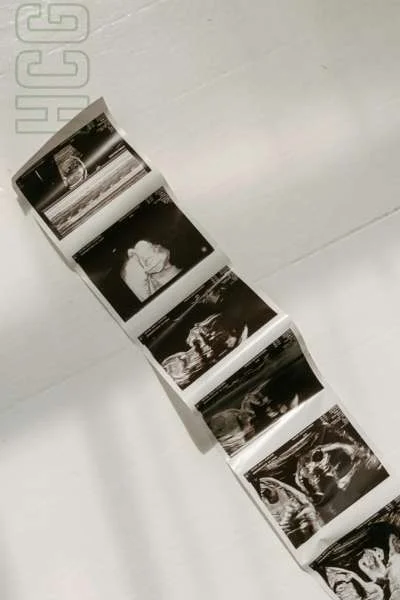
Buy HCG Peptide Nasal Spray from Peptide Works. Offered in 15ml and 30ml glass spray bottles, this non-invasive administration route provides an easy and effective alternative for consistent application.
hCG can stimulate testosterone production in male research models. Higher testosterone may influence sexual behavior and energy. Scientists use it in studies to explore hormone regulation, reproductive biology, and how testosterone affects libido and overall hormonal balance in controlled research settings.
hCG is a research peptide that helps study fertility and hormone functions. In women, it triggers ovulation by mimicking luteinizing hormone, helping eggs mature and be released. In men, it stimulates the testes to produce testosterone and support sperm growth. Scientists use hCG to research fertility and hormone-related processes safely in controlled studies.
It is available for research and laboratory studies. Researchers can purchase it to study fertility, hormone regulation, and reproductive biology. In the United States, the FDA regulates hCG as a prescription drug, so it is sold only for laboratory and research purposes. Scientists use it under controlled conditions to explore biological processes safely.
In research studies, the peptide has been shown to influence cells and tissues in various ways. Experiments have observed effects such as changes in hormone signaling, ovarian hyperstimulation, visual disturbances, electrolyte imbalances, and altered metabolic activity. Researchers use the peptide under controlled conditions to study these responses and better understand hormone regulation and reproductive biology.
Human Chorionic Gonadotropin has been marketed in various weight-loss products, including HCG injections and the HCG diet, which typically involves a very low-calorie diet (VLCD). While some claim that it promotes fat loss, preserves muscle mass, and aids in the treatment of obesity, current scientific evidence does not support these health claims. There is no substantial evidence that HCG contributes to weight loss beyond the effects of calorie restriction.
The Federal Trade Commission (FTC) and health care professionals caution against the use of HCG products for weight loss, as improper drug administration and unsupported health claims can pose risks, including high blood pressure and other health complications.
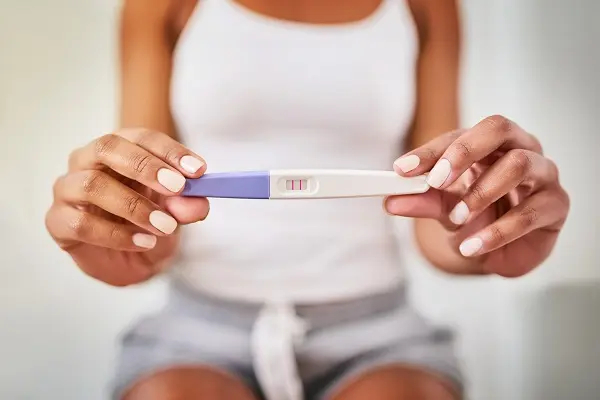
This blog explores HCG fertility treatment, focusing on its role in reproductive research. It examines how HCG mimics luteinizing hormone, activates cellular pathways like mTOR, and boosts key enzymes to support hormone production. The blog highlights HCG's impact on progesterone levels, its research success rates, and its potential in advancing fertility science.
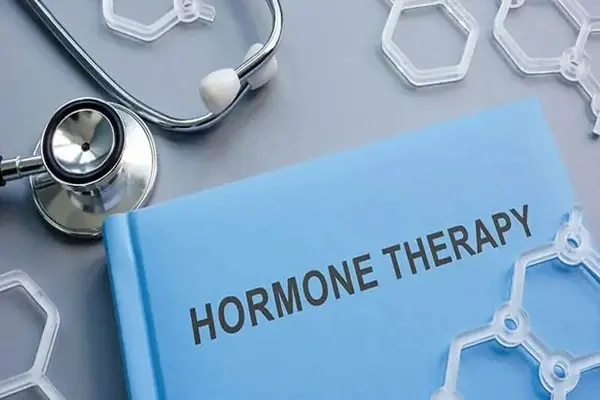
This blog explores Testosterone Replacement Therapy Peptides, such as HCG and Tesamorelin, and their role in boosting natural testosterone production through hormone signaling. It highlights their mechanisms, benefits like improved energy and reduced fatigue, and the importance of hormone balance. The blog also discusses ongoing research and future advancements in peptide therapy.
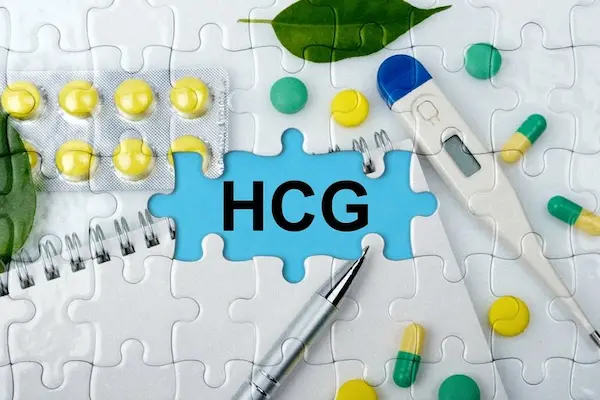
This blog compares Gonadorelin Peptide and HCG, highlighting their unique mechanisms, structures, and effectiveness in hormone research. Gonadorelin offers rapid, precise responses, while HCG provides sustained activity due to its complex structure. Researchers choose based on study goals, with both peptides offering distinct advantages for short-term or long-term applications in scientific studies.
Excellent Customer Support
Value For Money
99% Pure Guaranteed
World Wide Shipping
ALL CONTENT AND PRODUCT INFORMATION AVAILABLE ON THIS WEBSITE IS FOR EDUCATIONAL PURPOSES ONLY.
DISCLAIMER: These products are intended solely as a research chemical only. This classification allows for their use only for research development and laboratory studies. The information available on our Peptide Works website: https://peptide-works.com/ is provided for educational purposes only. These products are not for human or animal use or consumption in any manner. Handling of these products should be limited to suitably qualified professionals. They are not to be classified as a drug, food, cosmetic, or medicinal product and must not be mislabelled or used as such.